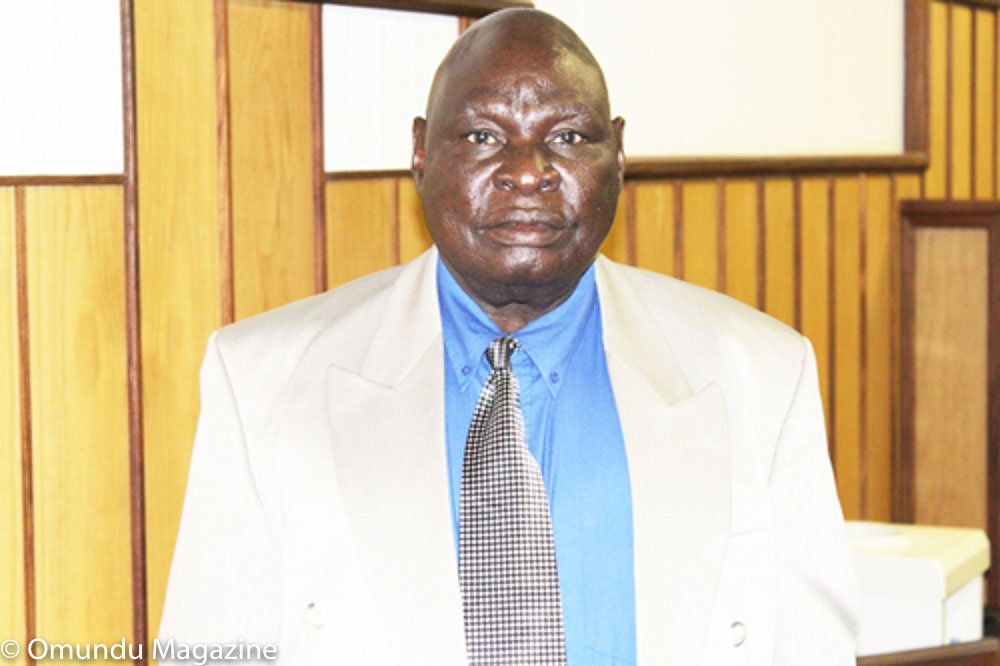Shopping cart
Recent Posts
Subscribe
Sign up to get update news about us. Don't be hasitate your email is safe.

Richwell Mahupelo had sued the State for N$ 15.3 million and partly succeeded in his claim in the High Court, prompting the State respondents to appeal.
His release and lawsuit followed that of Rodwell Kasika Mukendwa, who was released on 10 August 2012 as the first person accused of treason to go free for lack of evidence against him.
Mukwenda walked out of the visitor’s gate at the Windhoek Correctional Facility in the late afternoon of that day, wearing a very broad smile and arriving into the warm embrace of his son, cheers from his family and an uncertain future.
Aged 68, he had been detained for 13 years before Prosecution in the trial decided to cut him lose for lack of sufficient evidence on which to convict him. His lawsuit was filed the next November.
Since then, former school principal Gabriel Ntelamo, former immigration officer Robert Chelezo, as well as Eugene Ngalaule and John Samati have filed suits in relation to their arrests and prosecution. The latter group was acquitted in Justice Elton Hoff’s judgment in the main trial, before filing their lawsuits.

All lawsuits filed, if settled; would have cost the State more than N$ 150 million.
Authorities arrested 126 people and charged them with several offences, including murder and treason after a brief attempted putsch at Katima Mulilo and other targets in present day Zambezi Region was quelled on 2 August 1999. The Caprivi Liberation Army was linked to the co-ordinated attacks, which left 9 people dead, several others injured and properties damaged in some parts of the region.
Mahupelo was arrested on 25 August 1999 on suspicion that he had transported some suspected rebels to sites where they attacked their targets, and then assisted them in fleeing from the region into Botswana, where some fled to after the failed coupe.
Where the High Court had held that there was a reasonable and probable cause to arrest, charge and prosecute Mahupelo, it also found that there was no reasonable and probable cause to continue prosecuting him after November 2011, when the State knew that 3 witnesses who had implicated him, including his wife had failed to identify him in open court during trial.
Justice Peter Shivute said, in the appeal judgment to which Justices Chomba and Mokgoro agreed, that reasonable and probable cause existed to continue prosecuting Mahupelo after witnesses failed to identify him. Rehashing evidence the State had relied on in its decision to prosecute and sustain the prosecution after November 2011, Justice Shivute said 3 witnesses, including his ex wife had seen Mahupelo buy and transport food to rebels. Another witness saw him driving with Benett Mutuso. He says that there was no dispute in Mahupelo’s mind that witnesses naming “Shine” were implicating him of involvement in the failed coupe.
Chief Justice Shivute inferred that the failure by Mahupelo’s ex-wife to identify him may have been part of a stratagem Lead Prosecutor Taswald July claimed witnesses had started adopting. That strat- agem had witnesses saying before testifying that they can identify accused persons they implicated before only to go in and fail to identify them.
He says in a case built as it was on the doctrine of common purpose, the State could not have acquitted the accused person until the defence case, since it was possible for that part of the trial to produce evidence that could have boosted the case against the accused person.
Chief Justice Shivute says on that basis, it could not be said that the continued prosecu-
tion was unreasonable and lacked probable cause. That judgment drew its initial casualties among the series of lawsuits against the State.
Unless he appeals, Mukendwa’s lawsuit is as good as done. Judge Ueitele dismissed it.
“ The third question which I was required to determine is the question whether or not I was bound by the decision of this Court in the matters of Mahupelo v the Minister of Safety Security and Others and that of Makapa v The Minister of Safety and Security, but that question has been overtaken by events and has been answered by the Supreme Court.”
Judge Shafimana Ueitele, 31 July 2020.

Gabriel Mwilima withdrew his lawsuit on 15 October 2020 stating that after studying the Supreme Court judgement in similar cases, he saw no need to continue.
Moven Kawana’s lawsuit fell through in February 2018 and Rosco Makapa’s in May 2017.
For those acquitted or discharged in the Caprivi Treason Trial, the path to compensation will prove a major mountain to move, especially in lawsuits imputing malice in their arrests, charging or lengthy prosecution.
The spanner put into the works by the Supreme Court’s latest judgment has the effect of jamming all cogs and spokes, thereby limiting all movements towards successfully suing for compensation.
Comments are closed